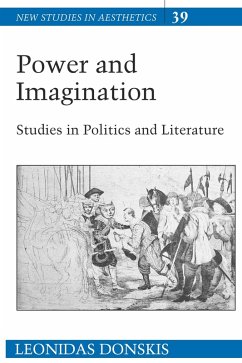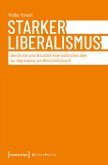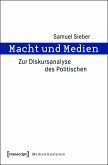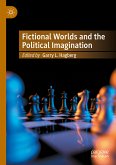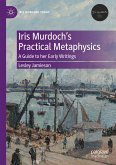Classical and modern literature often reveal more about the organized world's forms of power and authority structures than do works of political philosophy. What are the origins of political consciousness? How does our understanding of political power and its exercise originate in literature? Why do the early manifestations of political and religious tolerance appear in utopian literature, rather than in philosophical treatises? Is it possible to do fictionally what others tend to do academically and theoretically? Exploring these questions allows Leonidas Donskis to analyze the relationship between power and imagination, politics and literature, and the principles of reality and imagination.
Dieser Download kann aus rechtlichen Gründen nur mit Rechnungsadresse in A, D ausgeliefert werden.
«Power and imagination are the forces at work in Leonidas Donskis's brilliant book. They are the true heroes in 'Romeo and Juliet' and 'Don Quixote', Machiavelli's 'Il Principe', Yevgeny Zamyatin's 'We', George Orwell's '1984', and Aldous Huxley's 'Brave New World'. Power and imagination decide on the fortune of men and women, of states and nations. Leonidas Donskis demonstrates how we can learn from these classic texts to get a better understanding of the world of politics, and of just how the 'powerful' learned from them to shape this world to their tastes and ambitions. We have to thank the author for this very informative book.» (Manfred Holler, Professor of Economics, University of Hamburg, Germany)
«Leonidas Donskis's book is a detailed proof of his basic thesis that classical literature often gives a better understanding of the world's structure and changes than do the works of political philosophy. From the power of love and friendship shown in 'Romeo and Juliet' and 'Don Quixote' to the twentieth century's utopias, or rather dystopias, and political use of organized hatred, Donskis demonstrates by careful analysis how European literature again and again anticipated the political developments of the future. Five hundred years of European poetry confronted with the history of political ideas, and political reality yield a fascinating deep understanding of the genesis of the present world. It is a pleasure to read these highly informative, thought-provoking impressive pieces of European 'Kulturphilosophie'.» (Hubert Schleichert, Professor Emeritus of Philosophy, University of Konstanz, Germany)
«Leonidas Donskis's book is a detailed proof of his basic thesis that classical literature often gives a better understanding of the world's structure and changes than do the works of political philosophy. From the power of love and friendship shown in 'Romeo and Juliet' and 'Don Quixote' to the twentieth century's utopias, or rather dystopias, and political use of organized hatred, Donskis demonstrates by careful analysis how European literature again and again anticipated the political developments of the future. Five hundred years of European poetry confronted with the history of political ideas, and political reality yield a fascinating deep understanding of the genesis of the present world. It is a pleasure to read these highly informative, thought-provoking impressive pieces of European 'Kulturphilosophie'.» (Hubert Schleichert, Professor Emeritus of Philosophy, University of Konstanz, Germany)

